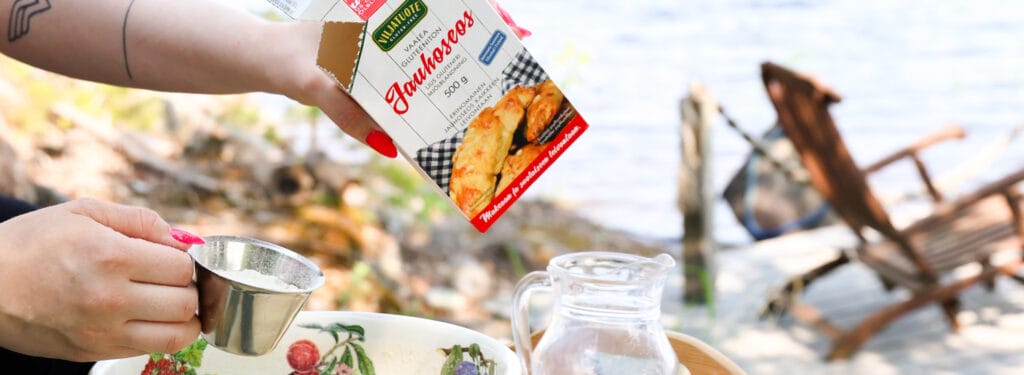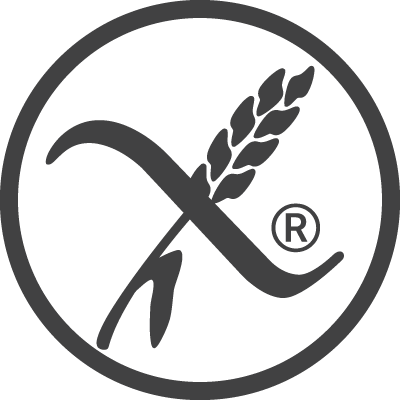Knowledge base - Food insecure people

Dietary restrictions
A food-restricted person is someone who, for one reason or another, cannot or does not want to eat certain foods or groups of foods. For some people with food intolerance, the choice is a health imperative, while for others it is constrained by beliefs and cultural norms, ethical values or personal preferences.
The Food Disadvantaged Group, founded by Helena Kemppainen online and on Facebook, sharing a wide range of information, recipes and support for the food-insecure.
Everyone has the right to choose >>
Voluntary choice or forced choice >>
How do you accommodate people with food insecurity?
People with food intolerances and gluten-free living >>
Everyone has the right to choose
Our food culture has become much more diverse in recent decades. More and more people are following various dietary restrictions, whether it is due to religious beliefs, ethical views, health problems or simply personal preferences. This presents new challenges and opportunities in cooking and eating practices.
Everyone has the right to choose what they eat and prepare. This is a fundamental human right that must be respected. People with food insecurity should not feel pressured to eat something that is not in line with their values or health. It is important to remember that food choices are often personal and can have deeper meanings.
Voluntary choice or compulsion
The switch to special diets can be either voluntary or forced. Voluntary choices are often based on health awareness, cultural, religious and ethical beliefs or environmental concerns. Forced choices are due to illness, allergies or intolerances. Both situations require understanding and support.
Making a voluntary transition to a special diet can be challenging, as it requires a new mindset and learning new recipes. However, it is important to remember that there is a wealth of information and resources available to help with this process.
Compulsory choices can be even more challenging, as they can limit food choices and make social encounters difficult. It is important that society, food producers, manufacturers and various food service providers offer support and assistance to these people so that they can lead full and healthy lives.
How do you cater for the food insecure?
Food insecurity is often associated with different information and beliefs. It is important to be curious and seek reliable information from different sources. Myths and misconceptions can cause unnecessary anxiety and make life difficult for people with food intolerances.
It is also important to remember that food restrictions are not the same as diet trends or fashion diets. Food restrictions can be based on ethical or cultural factors, health problems or beliefs and should not be taken lightly.
It is important to take into account the needs of people with food intolerances when designing and preparing ready-to-eat foods, restaurant meals and special occasions. This increases inclusiveness and facilitates the participation of all in cooking and eating. It should also be noted that being gluten-free does not automatically guarantee that a food is suitable for everyone - examples include naturally gluten-free oats and buckwheat.
- Clearly label allergens and other restrictions: it is important that food allergens and other restrictions are clearly labelled on packaging and menus. This will help avoid unintended allergic reactions.
- Provide options: restaurants and other caterers should be prepared to offer options to suit different diets. This could mean vegan or gluten-free options, for example.
- Be open and learning: it is important to be open to learning more about different food constraints and their impact on food production and development, to meet the changing needs of consumers.
People with food intolerances and gluten-free living
Following a gluten-free diet is, like other dietary restrictions, a mandatory choice for some and a voluntary choice for many. For diseases and conditions, see our other articles on Celiac Disease and IBS - Irritable Bowel Syndrome, for allergies see Food Allergies. Although the gluten-free diet was originally intended for people with coeliac disease, it can also be suitable for other food intolerances:
For more information on dietary restrictions and special diets, see the following sources we use:
- The website of the Disadvantaged Group helenakemppainen.com
- FoodDisabled - Facebook group
- Pirkanmaa Allergy and Asthma Association's online service for people with special diets Erimenu.fi




